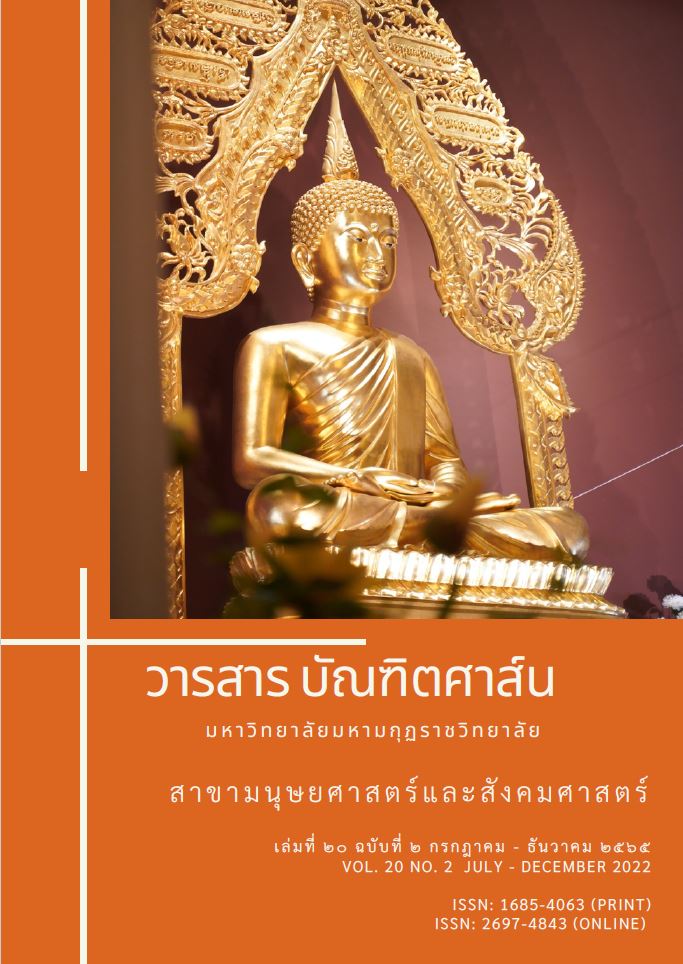การพัฒนาชุมชนแห่งการเรียนรู้ทางวิชาชีพครูในศตวรรษที่ 21 สำหรับโรงเรียนประถมศึกษา จังหวัดปทุมธานี
คำสำคัญ:
การพัฒนาชุมชนแห่งการเรียนรู้, วิชาชีพครูในศตวรรษที่ 21บทคัดย่อ
การวิจัยครั้งนี้มีวัตถุประสงค์ 1. เพื่อศึกษาองค์ประกอบของการพัฒนาชุมชนแห่งการเรียนรู้ทางวิชาชีพครูในศตวรรษที่ 21 สำหรับโรงเรียนประถมศึกษา จังหวัดปทุมธานี 2. เพื่อศึกษากระบวนการพัฒนาชุมชนแห่งการเรียนรู้ทางวิชาชีพครูในศตวรรษที่ 21 สำหรับโรงเรียนประถมศึกษา จังหวัดปทุมธานี 3. เพื่อเสนอแนวทางกระบวนการพัฒนาชุมชนแห่งการเรียนรู้ทางวิชาชีพครูในศตวรรษที่ 21 สำหรับโรงเรียนประถมศึกษา จังหวัดปทุมธานี เป็นการวิจัยแบบผสมผสานวิธี ระหว่างงานวิจัยเชิงปริมาณและงานวิจัยเชิงคุณภาพเครื่องมือที่ใช้ในการวิจัยเป็นแบบสอบถามและแบบสัมภาษณ์ โดยมีกลุ่มตัวอย่างเป็นผู้บริหารสถานศึกษาและครู จำนวน 265 คน และสัมภาษณ์ผู้ทรงคุณวุฒิจำนวน 5 ท่าน ใช้สถิติวิเคราะห์หาค่าร้อยละ ค่าเฉลี่ย และค่าเบี่ยงเบนมาตรฐาน และวิเคราะห์เนื้อหาแบบสัมภาษณ์
ผลการวิจัย
- ความคิดเห็นของผู้บริหารสถานศึกษา ครู ระดับประถมศึกษา จังหวัดปทุมธานี ต่อองค์ประกอบของการพัฒนาชุมชนแห่งการเรียนรู้ทางวิชาชีพครูในศตวรรษที่ 21อยู่ในระดับมาก และรายด้านทุกด้าน อยู่ในระดับมาก เรียงจากมากไปหาน้อย คือ 1. การจัดการเรียนรู้ในศตวรรษที่ 21 ประกอบด้วย การจัดการชั้นเรียน เทคโนโลยีสารสนเทศ ทักษะชีวิตและอาชีพ 2. องค์ประกอบของชุมชนแห่งการเรียนรู้ทางวิชาชีพครู ประกอบด้วย วิสัยทัศน์ร่วม การเรียนรู้และการพัฒนาวิชาชีพ ทีมร่วมแรงร่วมใจ ชุมชนกัลยาณมิตร ภาวะผู้นำร่วมและสนับสนุน และ โครงสร้างสนับสนุนชุมชน
- ผลการศึกษากระบวนการพัฒนาชุมชนแห่งการเรียนรู้ในศตวรรษที่ 21 สำหรับโรงเรียนประถมศึกษา จังหวัดปทุมธานี พบว่า1) กำหนดนโยบายและโครงสร้างที่ชัดเจน 2) สร้างความตระหนัก และรู้ถึงความสำคัญของชุมชน3) กำหนดแผน เวลาที่ชัดเจน 4) ผู้บริหารและครูได้ร่วมกันสร้างเป้าหมายในการพัฒนาผู้เรียนมีคุณภาพ5) สร้างเครือข่ายการสนับสนุนที่ดี โดย ผู้ปกครอง ชุมชน และองค์กรภายนอก6) ผู้บริหารสถานศึกษาให้การสนับสนุนทรัพยากร งบประมาณ สิ่งอำนวยความสะดวก 7) มีการเรียนรู้ร่วมกัน ระหว่างสมาชิก ในชุมชนแห่งการเรียนรู้ทางวิชาชีพ 8) มีการทำงานแบบร่วมมือร่วมใจ 9) การชี้แนะและการเป็นพี่เลี้ยง บทบาทของสมาชิกในชุมชนต้องทำหน้าที่ชี้แนะ และเป็นพี่เลี้ยง ให้แก่กันและกัน ซึ่งการชี้แนะที่มีคุณค่าในการเสริมสร้างความคิดสร้างสรรค์นั้น 10) มีการสะท้อนคิด และการจดบันทึกการเรียนรู้จากการปฏิบัติ 11) การสร้างบรรยากาศที่เป็นกัลยาณมิตร 12) ใช้เทคโนโลยีช่วยในการขับเคลื่อนชุมชนแห่งการเรียนรู้ 13) ใช้วงจรบริหารงานคุณภาพ (PDCA) 14) มีการกำกับ นิเทศติดตามอย่างสม่ำเสมอ
- ผลการเสนอแนวทางกระบวนการพัฒนาชุมชนแห่งการเรียนรู้ในศตวรรษที่ 21สำหรับโรงเรียนประถมศึกษา จังหวัดปทุมธานีมีดังนี้ 1) ด้านชุมชนแห่งการเรียนรู้ทางวิชาชีพครูในศตวรรษที่ 21 ใช้หลักการทำงานร่วมกันแบบกัลยาณมิตร แลกเปลี่ยนเรียนรู้เรียนรู้ซึ่งกันและกัน มีวิสัยทัศน์ร่วมกัน มีภาวะผู้นำ ร่วมกันเรียนรู้ ทำงานแบบร่วมมือร่วมใจ มีการชี้แนะและเป็นพี่เลี้ยง มีการสะท้อนคิด ร่วมกันพัฒนาปรับปรุงคุณภาพ 2) ด้านการจัดการเรียนรู้ในศตวรรษที่ 21 ประกอบด้วย การจัดการชั้นเรียน เทคโนโลยีสารสนเทศ และทักษะชีวิตและทักษะอาชีพ ส่งเสริมให้ครูเข้าอบรม จัดอบรม ศึกษาดูงาน และพัฒนาวิชาชีพ และสนับสนุนวัสดุอุปกรณ์ ครูเปลี่ยนบทบาทเป็นโค้ช ผู้อำนวยความสะดวก จัดกิจกรรมที่ส่งเสริมผู้เรียนให้มีทักษะในศตวรรษที่ 21 และมีการกำกับติดตามอย่างต่อเนื่อง3) ด้านลักษณะของผู้บริหารสถานศึกษา และครู ผู้บริหารสถานศึกษา ควรพัฒนาภาวะผู้นำทางวิชาการในศตวรรษที่ 21 เปิดโอกาสให้สมาชิกเป็นผู้นำร่วม โดยยึดหลักกระจายอำนาจ สร้างแรงบันดาลใจ ให้ชุมชนมีความสุขในการทำงานร่วมกัน ส่วนครู ควรพัฒนาภาวะผู้นำ กล้าคิดกล้าทำ เป็นผู้เรียนรู้ตลอดชีวิต มีทักษะด้านเทคโนโลยีสารสนเทศ มีความคิดสร้างสรรค์ มีการตัดสินใจที่ดี มีความเชื่อมั่นในตนเอง
เอกสารอ้างอิง
กระทรวงศึกษาธิการ, พระราชบัญญัติการศึกษาแห่งชาติ พ.ศ.2542 และที่แก้ไขเพิ่มเติม (ฉบับที่ 2) พ.ศ.
พร้อมกฎหมายที่เกี่ยวข้องและพระราชบัญญัติการศึกษาภาคบังคับ พ.ศ.2545.
(กรุงเทพมหานคร: โรงพิมพ์องค์กรรับส่งสินค้าและพัสดุภัณฑ์, 2550), หน้า 3.
สำนักงานเลขาธิการสภาการศึกษา, สมรรถนะการศึกษาไทยในเวทีสากล ปี พ.ศ. 2560, (นนทบุรี: 21 เซ็นจู
รี, 2560), หน้า 76–79.
รัฐบาลไทย, รัฐธรรมนูญแห่งราชอาณาจักรไทย พุทธศักราช 2560, [ออนไลน์], แหล่งที่มา
ttp://www.ratchakitcha.soc.go.th/DATA/PDF/2560/A/040/1.PDF [13 กรกฎาคม 2563].
ราชกิจจานุเบกษา เล่ม 135 ที่ 82 ก, ยุทธศาสตร์ชาติ (พ.ศ. 2561-2580), 13 ตุลาคม 2561: หน้า 37,
[ออนไลน์], แหล่งที่มา: http://www.ratchakitcha.soc.go.th/DATA/PDF/2561/A/082 /T_0001.PDF
ตุลาคม 2563].
Bellanca, J. & Brandt, R. 21' Century Skills: Rethinking How Students Learn. Tuttle-Mori:
Solution Tree Press, 2011.
Carpenter, D. "School Culture and Leadership of Professional Learning Communities,"
International Journal of Educational Management. 29 (5) (August2015): 682-694.
Leclerc, M. and others. "Factors that promote Progression in Schools Functioning as
Professional Learning Community,"International Journal of Education Policy &
Leadership. 7(7) : 1-14 ;10 December, 2012.
Likert, Rensis, “The Method of Constructing and Attitude Scale”, in Reading in Attitude Theory
and Measurement. Fishbeic, Matin, Ed, New York : Wiley & Son, 1967.
Newman, F. M.: & Wehlage, G. G. Five Standards of Authentic Instruction. Educational
Leadership, 1995.
ดาวน์โหลด
เผยแพร่แล้ว
รูปแบบการอ้างอิง
ฉบับ
ประเภทบทความ
สัญญาอนุญาต
ลิขสิทธิ์ (c) 2022 มหาวิทยาลัยมหามกุฏราชวิทยาลัย

อนุญาตภายใต้เงื่อนไข Creative Commons Attribution-NonCommercial-NoDerivatives 4.0 International License.
บทความวิชาการและบทความวิจัยในวารสารฉบับนี้ถือเป็นความรับผิดชอบของผู้เขียนเท่านั้น บทความที่ได้รับการตีพิมพ์ในวารสารบัณฑิตศาส์น ถือเป็นลิขสิทธิ์ของมหาวิทยาลัยมหามกุฏราชวิทยาลัย ตามพระราชบัญญัติลิขสิทธิ์



